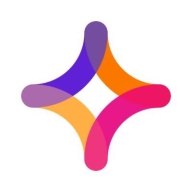

Informatica Intelligent Data Management Cloud (IDMC) and Jitterbit Harmony are both leading products in the data integration and management sector, each with unique strengths. Jitterbit Harmony might have a feature advantage justifying its cost, while IDMC offers more competitive pricing and efficient support.
Features: IDMC provides extensive data integration capabilities, real-time data streaming, and powerful transformation functions. Jitterbit Harmony stands out with its user-friendly API integration, robust connectivity options, and excellent data mapping features.
Room for Improvement: IDMC could enhance user interface intuitiveness, expand integration capabilities, and improve initial setup complexity. Jitterbit Harmony might focus on expanding its feature set, optimizing for larger datasets, and improving documentation for ease of use.
Ease of Deployment and Customer Service: IDMC offers a versatile deployment model and strong customer support, facilitating an efficient setup. Jitterbit Harmony provides quick deployments with personalized customer service. The integrated cloud approach gives IDMC a slight edge.
Pricing and ROI: IDMC is praised for its cost-effectiveness and higher ROI, attributed to its bundled features and scalable pricing strategy. Jitterbit Harmony may have higher initial costs but offers substantial long-term value through extensive feature use. IDMC's balanced pricing strategy is more appealing, especially for budget-conscious organizations.
We see return on investment from this solution in terms of time; time reduction or cost benefits is what we are getting very good results from.
Due to the tool's maturity limitations, solutions are not always simple and often require workarounds.
The response time is pretty good because we have someone in-house, who is an expert from Informatica, in our team who can help us with any sort of queries usually.
For products Master Data Management or related to MDM or Data Governance, there is no way by which we can directly practice, and my team struggles at that point.
As a SaaS platform, IDMC is quite scalable and provides complete flexibility.
I find Informatica Intelligent Data Management Cloud (IDMC) to be a sustainable and scalable solution.
Stability is crucial because IDMC holds business-critical data, and it needs to be available all the time for business users.
The tool needs to mature in terms of category-specific attributes or dynamic attributes.
The observability concept in Informatica Intelligent Data Management Cloud (IDMC) needs improvement as the capabilities are not up to the mark compared to the industry.
The licenses are too expensive compared to before, which is why customers are now preferring other data metadata management tools like OneTrust, Collibra, and Azure Purview.
IDMC is often described as the 'Ferrari of Master Data Solutions,' implying that while expensive, it is business-critical and, therefore, justified.
The licenses are too expensive compared to before, which is why customers are now preferring other data metadata management tools like OneTrust, Collibra, and Azure Purview.
I think the costs are reasonable for the kinds of features that Informatica Intelligent Data Management Cloud (IDMC) has.
In on-premise, we call it EDC for metadata management, while in cloud-based technologies, it is known as the Metadata Command Center, which serves the same purpose as EDC concerning CDGC.
The platform's ability to pull in data from other platforms without the need for an additional integration tool enhances its appeal.
Informatica Intelligent Data Management Cloud (IDMC) can connect to pretty much any application, including Oracle Analytics and Power BI, and it works quite seamlessly.
| Product | Market Share (%) |
|---|---|
| Informatica Intelligent Data Management Cloud (IDMC) | 3.4% |
| Jitterbit Harmony | 0.7% |
| Other | 95.9% |


| Company Size | Count |
|---|---|
| Small Business | 42 |
| Midsize Enterprise | 24 |
| Large Enterprise | 134 |
| Company Size | Count |
|---|---|
| Small Business | 8 |
| Midsize Enterprise | 3 |
| Large Enterprise | 1 |
Informatica Intelligent Data Management Cloud (IDMC) integrates data quality, governance, and integration with flexible architecture. It supports multiple domains and a data models repository, delivering AI-enhanced data management across cloud-native platforms.
IDMC provides seamless integration and governance capabilities that support diverse data environments. Its comprehensive suite includes customizable workflows, data profiling, and metadata management. AI features, a data marketplace, and performance scalability enhance data management. While its interface poses challenges, its robust matching and cloud-native integration facilities are essential for complex data ecosystems. Users employ IDMC for connecting systems, ensuring data quality, and supporting data compliance but seek better pre-built rules, services, and improved connectivity, especially with platforms like Salesforce. Licensing, cost, and added AI functionalities are areas for potential refinement.
What are the key features of IDMC?IDMC is implemented across industries for data integration, metadata management, and governance. Organizations use it to connect systems, migrate data to cloud environments, and maintain data quality. They manage master data and automate business processes, facilitating data lineage and ensuring compliance with privacy regulations.
Jitterbit Harmony offers an advanced integration platform that simplifies data transformation, helps users quickly connect apps, and automates workflows, streamlining complex business processes efficiently.
Designed to meet the high demands of modern businesses, Jitterbit Harmony enables seamless integration across cloud and on-premise environments. By leveraging its powerful tools and user-friendly design, users can accelerate innovation, reduce operational costs, and enhance productivity. It bridges the gap between traditional and emerging technologies, ensuring organizations can adapt quickly to market changes and remain competitive.
What are the key features of Jitterbit Harmony?Jitterbit Harmony finds its application across numerous industries, from enhancing data integration in the healthcare sector to optimizing supply chain logistics in manufacturing. It supports financial institutions by improving transaction processing and facilitates real-time data connectivity in retail environments, making it a versatile choice for diverse industries looking to innovate rapidly.
We monitor all Data Integration reviews to prevent fraudulent reviews and keep review quality high. We do not post reviews by company employees or direct competitors. We validate each review for authenticity via cross-reference with LinkedIn, and personal follow-up with the reviewer when necessary.